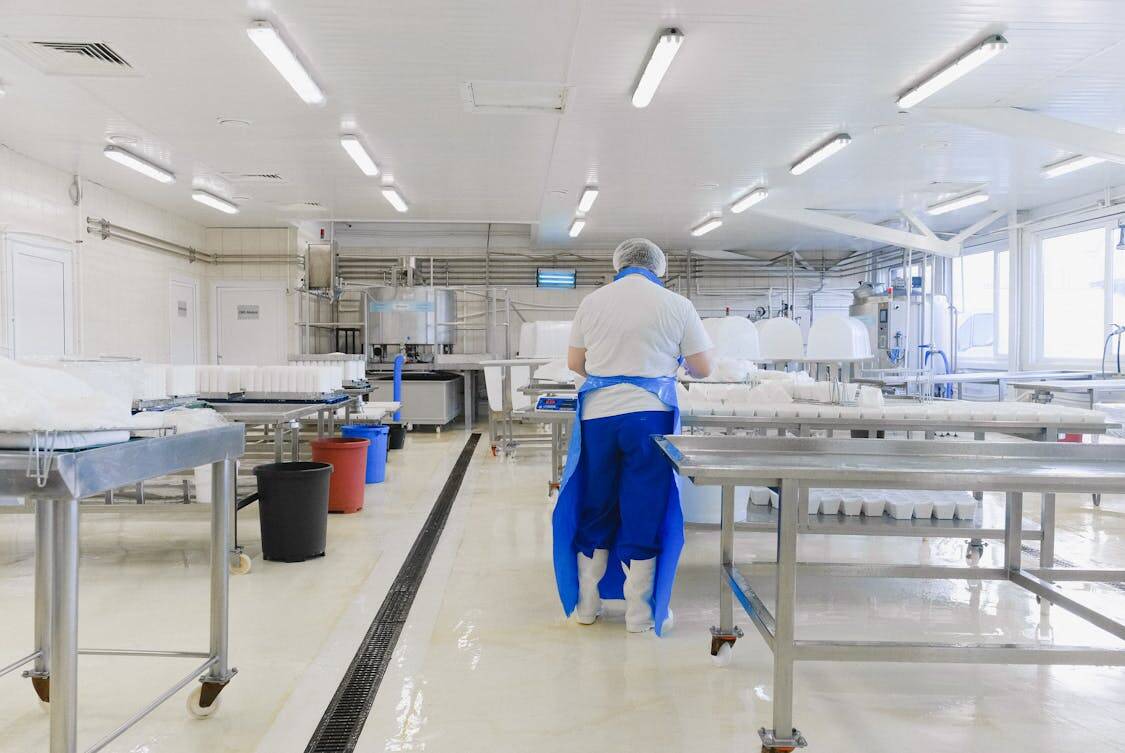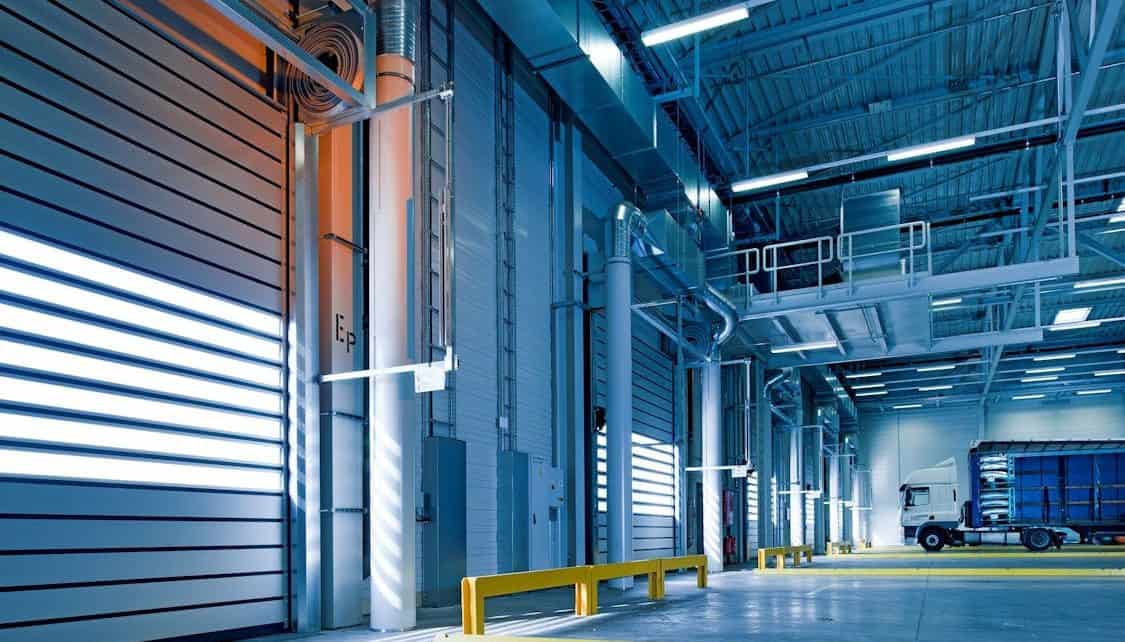Epoxy flooring has made significant strides in industrial applications over the years. This durable solution has become a go-to choice for manufacturers, warehouses, and other industrial spaces.
Understanding the reasons behind its popularity reveals why epoxy flooring is often the best fit in demanding environments.
1. Exceptional Durability
One of the foremost reasons epoxy flooring is favored in industrial settings is its remarkable durability. Epoxy formulations are designed to withstand heavy traffic, extreme temperatures, and various chemicals. Whether it’s a bustling factory or a storage facility, this flooring can endure the daily wear and tear that other materials might not.
Moreover, epoxy offers resistance to impacts and abrasions. Industrial operations often involve moving heavy machinery and equipment, which can create severe stress on floors. Epoxy surfaces maintain their integrity longer than traditional flooring options, standing tall against the challenges posed by an industrial environment.
In addition to physical stresses, epoxy floors resist moisture and spills. When liquids seep into other floor types, they can lead to damage and deterioration. However, the non-porous nature of epoxy ensures that liquids remain on the surface, allowing for easy cleanup and preventing permanent staining.
Choosing epoxy flooring means investing in a long-lasting solution. The initial costs may be higher compared to other flooring materials, but the reduced need for repairs and replacements translates to significant savings over time.
2. Easy Maintenance
In the fast-paced world of industrial operations, time is money. Keeping a facility clean and operational is paramount, and this is where epoxy flooring shines. Its smooth, seamless surface makes daily cleaning and maintenance a straightforward task.
If your facility prioritizes hygiene and efficiency, we highly recommend exploring these low-maintenance protective floor solutions for a hassle-free and durable flooring experience.
Dust and debris do not cling to epoxy surfaces like they do with traditional flooring. A simple sweep or mop can restore the floor to its pristine condition. Additionally, the resistance to stains allows workers to deal with spills promptly without the worry of lasting damage.
Regular maintenance is also minimized with epoxy. Unlike carpets or tiles that may require extensive upkeep, epoxy surfaces generally require just periodic mopping with mild cleaners. This efficiency helps keep labor costs down and ensures that the facility stays clean without significant effort.
Another perk is that epoxy flooring is resistant to microbial growth. In environments where hygiene is critical, such as food processing plants, this quality provides an added layer of safety. Employers can feel confident knowing that their flooring won’t harbor harmful bacteria or other contaminants.
3. Chemical Resistance

The industrial environment often involves exposure to a range of chemicals, from oils and solvents to cleaning agents and acids. Epoxy flooring provides an impeccable defense against these substances, making it an ideal choice for manufacturing and chemical processing facilities.
The chemical-resistant properties of epoxy come from its formulation. Once cured, epoxy flooring forms a hard barrier that can withstand various corrosive materials. This durability prevents chemical spills from penetrating the floor, which could lead to costly repairs and downtime.
In addition to resisting chemical damage, epoxy flooring helps in maintaining a safe working environment. Many industries require strict compliance with safety regulations, and having floors that can resist chemical exposure is a significant factor in ensuring workplace safety.
Moreover, the ability to customize the epoxy mixture allows operators to tailor the flooring to specific needs. By working with suppliers, facilities can achieve the right balance of properties suited for their unique industrial challenges, enhancing overall performance.
4. Safety Features
Safety in the workplace is non-negotiable, especially in industrial settings where heavy machinery and hazardous materials are commonplace. Epoxy flooring contributes significantly to a safer work environment, thanks to its various safety features.
One such feature is slip resistance. Epoxy coatings can be formulated with additives that increase surface traction, reducing the likelihood of slips and falls. This is especially critical in areas prone to spills or where workers frequently transport materials.
Another safety aspect is the visibility of the flooring. Many epoxy floors can be produced in bright, reflective colors, improving overall lighting in the workspace. Enhanced visibility not only aids in reducing accidents but also improves morale, as employees work in a well-lit environment.
Finally, epoxy flooring can be designed with specific markings or patterns to denote areas for equipment, walkways, or hazard zones. Such visual cues help streamline workflow and ensure compliance with safety protocols, supporting a culture of safety in the workplace.
5. Cost-Effectiveness
When considering flooring options, the bottom line is always a factor. Epoxy flooring provides an excellent return on investment, making it a cost-effective choice for industrial applications. The long lifespan, coupled with minimal maintenance requirements, ensures that businesses get their money’s worth.
The initial installation cost might be higher than some traditional flooring options. However, the durability means fewer replacements and repairs over time. Businesses can avoid the cycle of frequent flooring upgrades, which can be disruptive and costly.
Moreover, the ease of maintenance cuts down on cleaning costs. As mentioned earlier, epoxy requires little more than basic cleaning supplies. This means less time and fewer resources spent on upkeep, allowing funds to be allocated toward other operational needs.
Lastly, the safety and efficiency gained through epoxy flooring can lead to increased productivity. Fewer accidents, less downtime, and a more effective working environment help drive profitability, making epoxy flooring a wise investment for any industrial facility.
In summary, epoxy flooring stands out as a highly advantageous option for industrial use. Its durability, easy maintenance, chemical resistance, safety features, and cost-effectiveness make it an all-around winner. Businesses looking to enhance their industrial spaces would do well to consider the many benefits that epoxy flooring has to offer.


